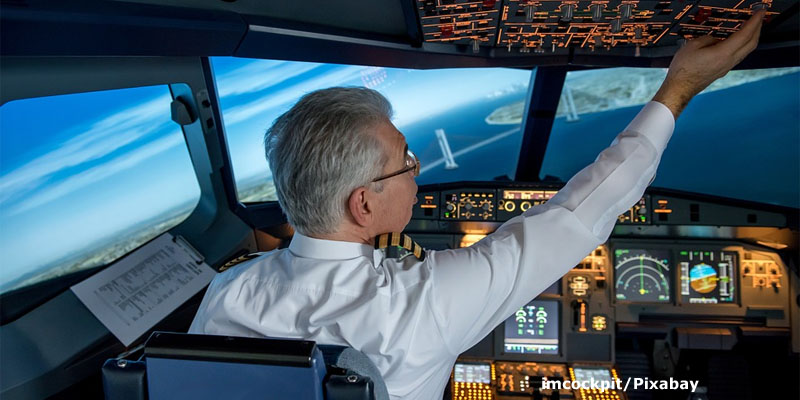While many people in the world dream of becoming an Airline Pilot, not everyone is clear about the skills that are required to be successful on the complex road to realizing that desire. Commercial aviation is an industry that is constantly evolving, and with it, the professionals who make up the industry have also had to evolve and adapt to fundamental changes in order to survive in this competitive world.
See also: Boeing hires pilots to help return of 737 MAX.
The skills that have always been required of a pilot are those that might be obvious to an outsider. It is known that a good level of understanding of mathematics and physics is required, necessary to understand the laws of aerodynamics and other principles that govern flight. The ability to understand complex technical information is also required, since pilots need to know how the aircraft they operate and its systems work, and of course, excellent spatial awareness and the ability to properly coordinate the senses to maneuver the aircraft accurately at each stage of flight. In addition, they need to be fluent in English, the language commonly used throughout the world for the issuance of publications and manufacturers’ manuals, all technical literature and also aeronautical communications in international flights.
See also: Emirates Flight Academy celebrates first graduation cadet pilots.
However, there is another group of skills that are required by modern aviation, and which make the profession of airline pilot a complex one that requires the application of multiple disciplines in a challenging context where the management of sometimes scarce resources in a short time is crucial to ensure operational safety, a priority in passenger transport. Let us know some of these skills:
- Leadership and Teamwork: Multiple studies have shown that many aviation accidents occur because crews fail to work as a team. The airline pilot must know how to balance his authority with the necessary leadership to foster a collaborative work environment, where they work synergistically to achieve operational objectives. This requires the application of modern principles of leadership and effective communication, in order to efficiently manage workloads, especially in complex situations.
- Situational Awareness: A pilot needs to be aware of a large number of factors that are involved in flight. The more developed this skill is, the better the ability to make critical decisions, especially when there is not much time to analyze or gather more information. Situational awareness does not refer only to spatial location, but to a combination of information that includes what has happened in the past, what is happening now, and what might happen in the future in each possible decision that is made. Some factors to take into account are meteorology, technical condition of the aircraft, state of the aviation infrastructure (airports, navigation aids, among others), amount of fuel on board, regulatory requirements, operational procedures, among others.
- Communication: The exchange of information between humans can be very challenging when there are barriers that limit effective communication. In aviation, there are many barriers that the pilot must constantly overcome in order to ensure the proper flow of information and safe operation. Stress, language barriers, noise in radio communications, the authority gradient within crews, cultural differences, fatigue and time constraints are some of the difficulties that airline pilots encounter on a daily basis and must overcome by applying techniques that ensure assertive communication, which is critical to the safety of the operation.
- Discipline: This is perhaps one of the most important skills of a pilot. Although it is true that in critical situations a lot is demanded from the pilots to solve crises, most of the time the flights pass in a calm, routine way and with little difficulty. This would lead pilots to relax their behavior and conduct, as well as their adherence to the standard procedures that exist to ensure safety. The only thing that prevents this from happening is discipline and operational integrity, which leads the airline pilot to act consistently at every moment of the flight.
For some pilots, many of these skills and abilities are innate and flow naturally. For others, however, they are the result of years of learning and hard work to develop them. The good news is that modern aviation dedicates an enormous effort in training these skills to its pilots, since it is known that strengthening the Human Factor is the most effective tool to further improve the safety record in air passenger transport. Technology and advances in science have made it possible to design extremely reliable aircraft, but making them fly safely depends on having pilots who develop and put into practice each of the aforementioned skills.

Plataforma Informativa de Aviación Comercial con 13 años de trayectoria.
